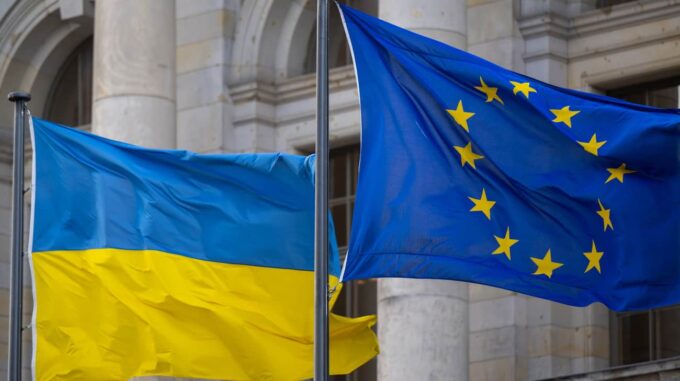The European Union reports significant progress in Ukraine’s preparation for full membership — the screening of key aspects of Ukraine’s compliance with European standards has already covered more than half of the way

This is an important milestone for our country, which over the past years has demonstrated unwavering dedication to reforms and European integration ambitions, despite ongoing war and numerous challenges. As the European Commission spokesperson Guillaume Merelle notes, the process involves a thorough examination of Ukraine’s legislation and practices concerning various aspects of European standards. To date, the screening in the most critical cluster — "Fundamental issues" or "Basics" — has been completed. This report, reflecting Ukraine’s compliance with normative and institutional fundamental principles, was submitted to the EU Council on January 16, 2025. Work is also underway on other clusters. In particular, by the end of June 2025, reports on the Internal Market and External Relations are expected to be prepared. An additional three key assessments — on humanitarian, economic, and legal aspects, as well as on human rights and democracy — are to be completed and submitted to the EU Council by the end of 2025 during Denmark’s presidency. Merelle emphasizes that this process is the fastest in EU history: "Ukraine demonstrates extraordinary commitment to reforms despite the ongoing war. Over 50% of the work is already done, and all efforts are focused on completing the process by autumn 2025." He adds that the final decision on opening negotiations for the "Basics" cluster, as well as for others, depends on the EU Council. A particular challenge remains the blockage by Hungary, which continues to oppose the opening of Negotiation Cluster 1. Viktor Orbán has publicly expressed his stance, opposing Ukraine’s rapid accession to the EU. However, the European Commission remains firm, calling for dialogue and the search for compromise solutions. Merelle stresses that "the Commission, together with Poland — which currently holds the EU presidency — is actively working on finding ways to resolve these disagreements." He adds that "negotiations are already underway with Hungary regarding the rights of the Hungarian minority in Ukraine, and all parties must show good will to reach an understanding." Regarding future steps, the screening process for other clusters is progressing in parallel. According to Merelle, work on half of the clusters has already been completed, with reports either submitted or about to be submitted to the EU Council as per the plan. Specifically, Cluster 1 was received in January 2025, and others — including Clusters 2 and 6 — during Poland’s presidency until the end of June. For the remaining clusters, he notes that the screening is planned to be completed and results submitted by the end of 2025 during Denmark’s presidency. A key point is the timeline. Given the current pace, the European Commission is confident that the entire process could be finalized within this year, provided there is positive approval from European countries. This would open the way for Ukraine to commence negotiations on membership in the near future and prevent delays in the process. It is also worth noting that, in the context of Ukraine’s European integration ambitions, competition with Moldova is increasing. Moldova plans to complete the screening of four out of six clusters by the end of May 2025 and to start the official negotiation phase earlier than Ukraine. At the same time, the main obstacle for Ukraine remains the political situation — particularly the open and prolonged blockade by Hungary. Viktor Orbán has already officially expressed his position, opposing Ukraine’s rapid accession and justifying this by the non-implementation of certain conditions and the protection of Hungary’s interests. Despite these difficulties, European institutions remain optimistic. The screening process is not only a crucial step in ensuring Ukraine’s compliance with European standards but also a demonstration of political will and the capacity of our state to implement important reforms. If cooperation between Ukraine, the EU, and its member states continues at this dynamic pace, prospects for opening negotiations and submitting a membership application could emerge in the near future, representing a significant step on Ukraine’s path toward European integration.

